October 8, 2025
Families receive aid in earthquake-hit Libaong, San Remigio, Cebu
By Dorothy Castro
It was late into the night of September 30 when a magnitude 6.9 earthquake hit Cebu. This caused 70 casualties as well as massive destruction to property and livelihood in its epicenter in Bogo City, and in Daanbantayan, Medellin, and Tabuelan, among others.
The disaster instantly reduced many homes to rubble. In Barangay Libaong in San Remigio, residents James Bulhot, Apolinario Fuentes, and Elizabeth Tunacao slept in cold tents and makeshift mats. They were either afraid to go home due to the aftershocks, or had no more home to go to.
Tzu Chi volunteers from Cebu and Manila immediately arranged for an ocular survey in areas hardest hit by the earthquake. Immediate relief operations were conducted for 350 families in Barangay Libaong.
The Municipality of San Remigio was one of the areas where destruction was at its worst. The quake produced more than 30 sinkholes, and numerous cracks on land and pavement with the shifting of the faultlines.
For the past few days, help had been hard to come by due to logistical difficulties after the quake. “We have been in contact with beneficiaries here, and we know it takes time to travel here. That is why we decided to help (this area) first,” said Alberto Mananay Jr., a Tzu Chi Cebu volunteer.
Volunteers traveled for four hours, from Mandaue to Libaong National High School in San Remigio, on the morning of October 5. Hoping to fill the beneficiaries’ hearts with courage, they provided food, bottled water, hygiene items, medicines, and blankets. A tearful encounter, many beneficiaries bravely shared their struggles.
Bulhot, a 39-year-old construction worker, could not forget his fear to this day. All he could do was embrace his two children, aged 5 and 10, until the tremors died down. Only then did they run out of the house.
Now, all he worried about was getting back on their feet. With a loss of livelihood due to the continued aftershocks, he had to put food on the table first before rebuilding his home.
Likewise, Fuentes, a 60-year-old farmer, saw his home ruined completely by the earthquake. While it had endured many storms for the past 40 years, it could not withstand the magnitude of the quake. For almost a week, his family of five had been sleeping in a makeshift tent across the street from where they lived.
All were left with little to no resources for their livelihood. Even Tunacao, who had been keeping her sari-sari (convenience) store afloat, lost all of her goods, along with her sister’s house of which she was its caretaker—its large portion fully collapsed. Yet despite her personal challenge, she continued to work in the barangay as a health worker, monitoring the situation of her community.
While the option of staying in evacuation centers was possible, the families prioritized giving children, seniors, and other vulnerable sectors shelter, opting to endure the hardships themselves.
“We have to have patience, and withstand this challenge,” Bulhot said. From mosquito bites to the heat and lack of electricity, he, as well as many others, accept their current situation with much discomfort.
For all the challenges they face, Bulhot, Fuentes, and Tunacao recited a phrase that belied their difficulties. “Kalipay og dako” (We are very happy) when asked how they felt about Tzu Chi’s arrival.
After earnestly praying for aid in their remote area, seeing the volunteers brought light into their dark days. “You are a blessing to our barangay, because we are the first ones you extended help to,” said Tunacao.
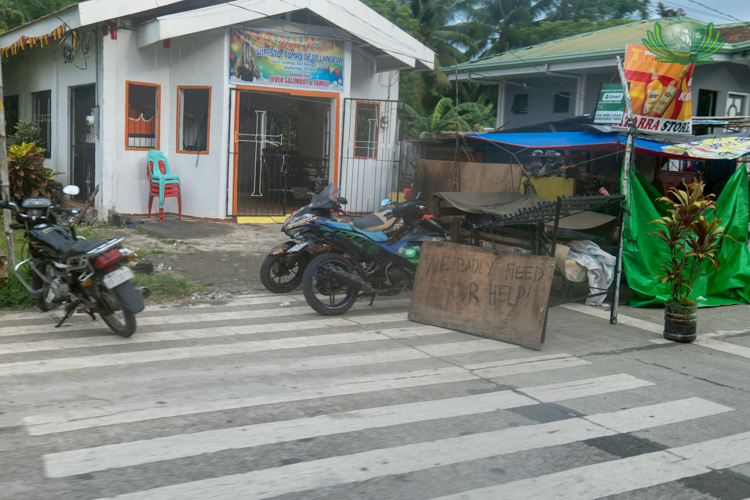 On the way to San Remigio, signs calling for help could be seen on the streets.
On the way to San Remigio, signs calling for help could be seen on the streets.
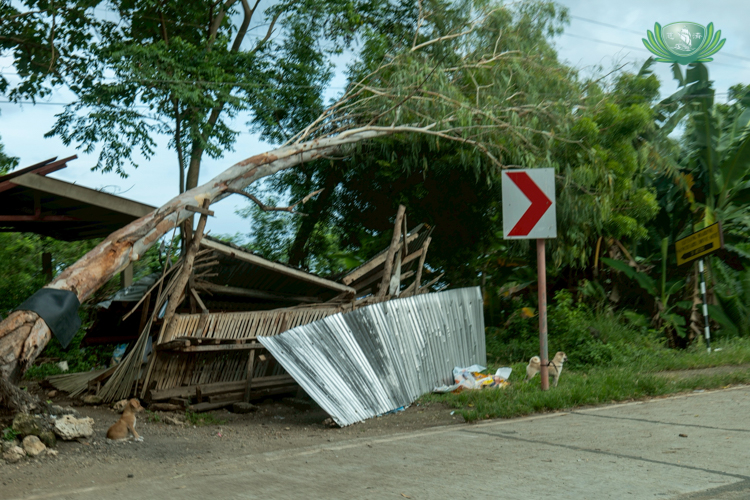 Destruction could be seen left and right in various areas of Cebu—trees toppled down, homes damaged.
Destruction could be seen left and right in various areas of Cebu—trees toppled down, homes damaged.
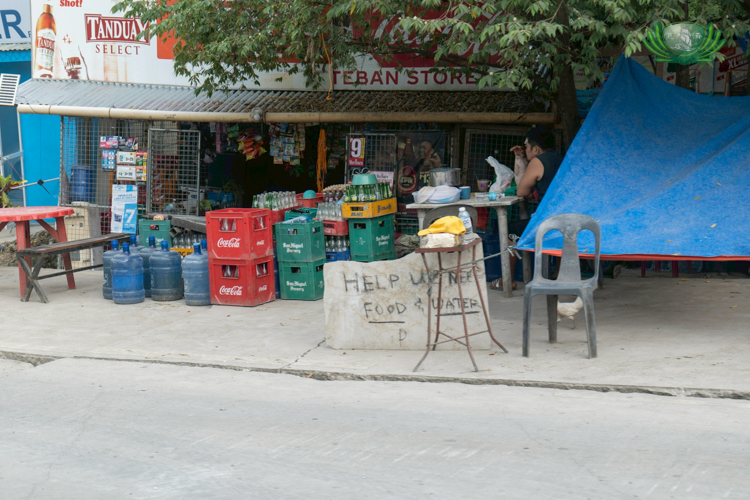 On the way to San Remigio, signs calling for help could be seen on the streets.
On the way to San Remigio, signs calling for help could be seen on the streets.
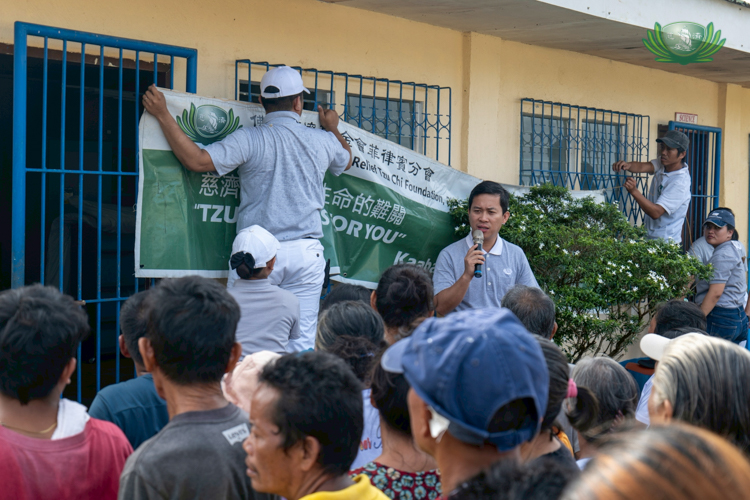 Alberto Mananay Jr., a Tzu Chi Cebu volunteer, helps organize the relief operation by greeting the beneficiaries.
Alberto Mananay Jr., a Tzu Chi Cebu volunteer, helps organize the relief operation by greeting the beneficiaries.
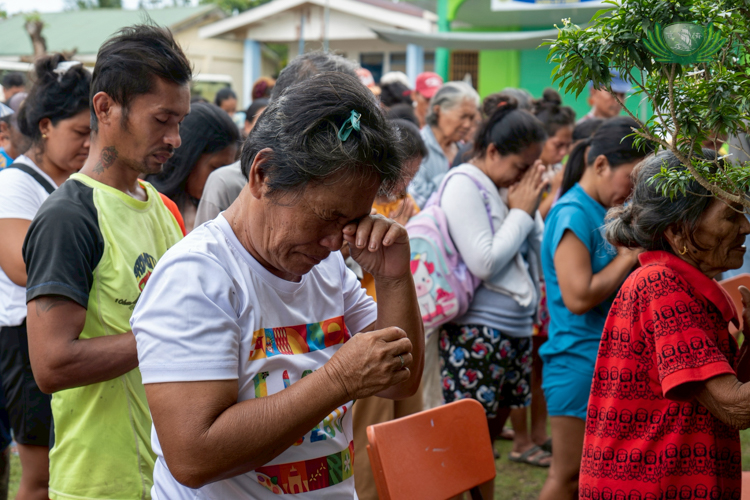 During prayer, a beneficiary is brought to tears.
During prayer, a beneficiary is brought to tears.
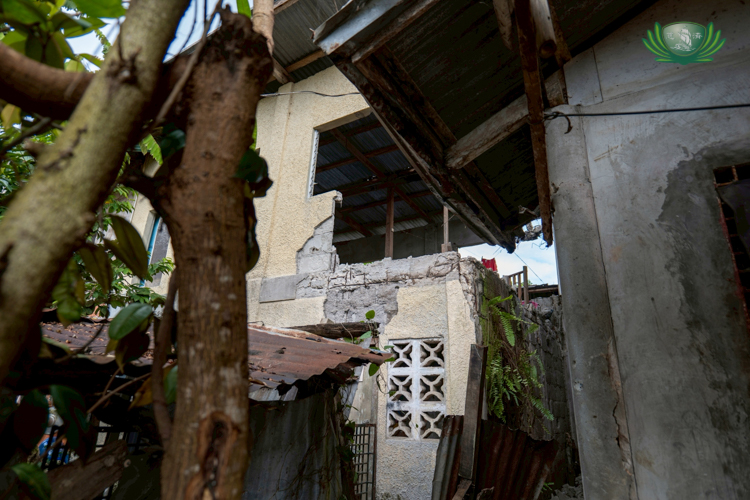 In San Remigio, one of the badly hit areas in Cebu, homes were either partially or totally destroyed.
In San Remigio, one of the badly hit areas in Cebu, homes were either partially or totally destroyed.
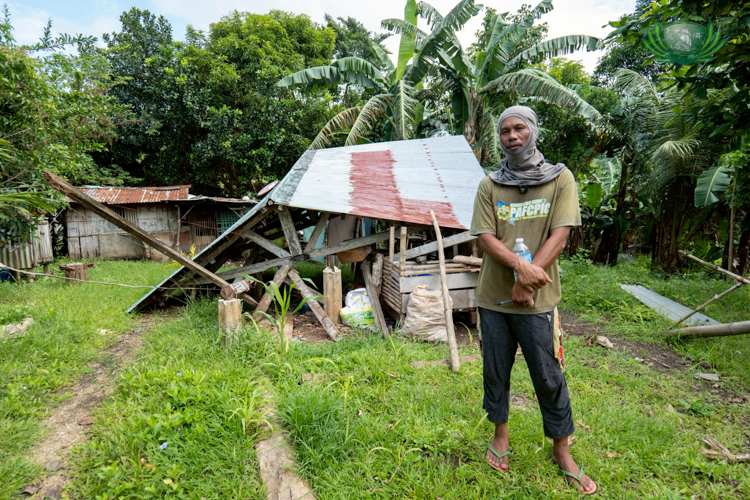 James Bulhot’s home, once a warm space for his family of four, was now left completely destroyed by the quake.
James Bulhot’s home, once a warm space for his family of four, was now left completely destroyed by the quake.
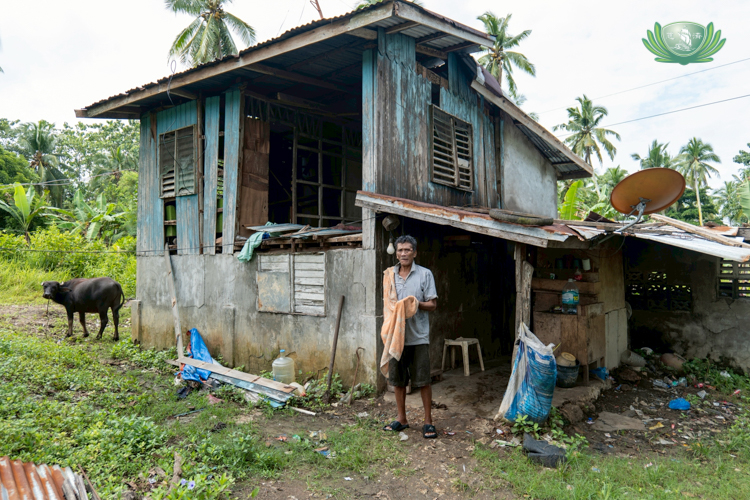 Apolinario Fuentes’ house, which had withstood storms in the past 40 years, was now considered unsafe to live in after the magnitude 6.9 quake.
Apolinario Fuentes’ house, which had withstood storms in the past 40 years, was now considered unsafe to live in after the magnitude 6.9 quake.
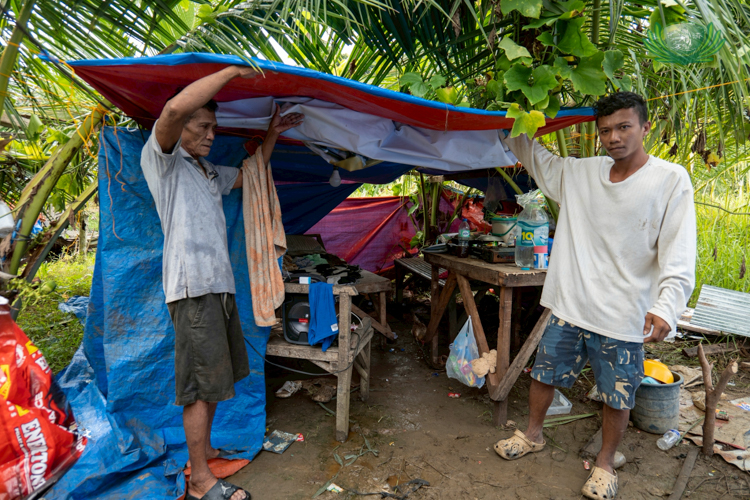 Currently, Apolinario Fuentes and his family live in a makeshift tent across the street from their home.
Currently, Apolinario Fuentes and his family live in a makeshift tent across the street from their home.
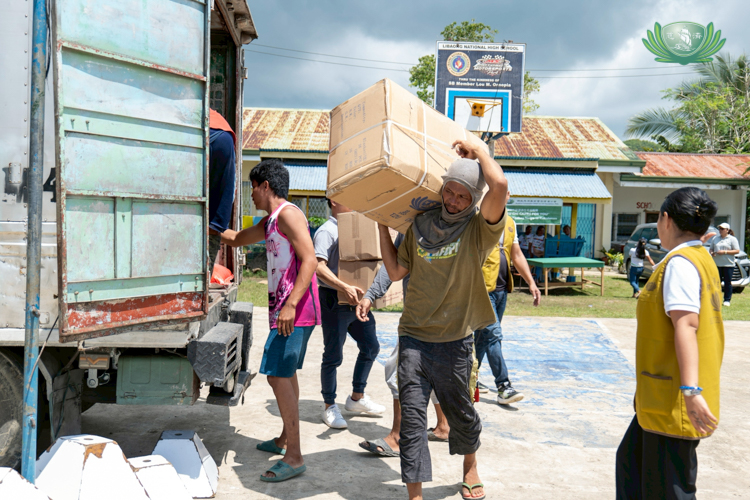 Despite being a beneficiary himself, James Bulhot (with box) was more than happy to help beneficiaries in carrying the relief goods.
Despite being a beneficiary himself, James Bulhot (with box) was more than happy to help beneficiaries in carrying the relief goods.
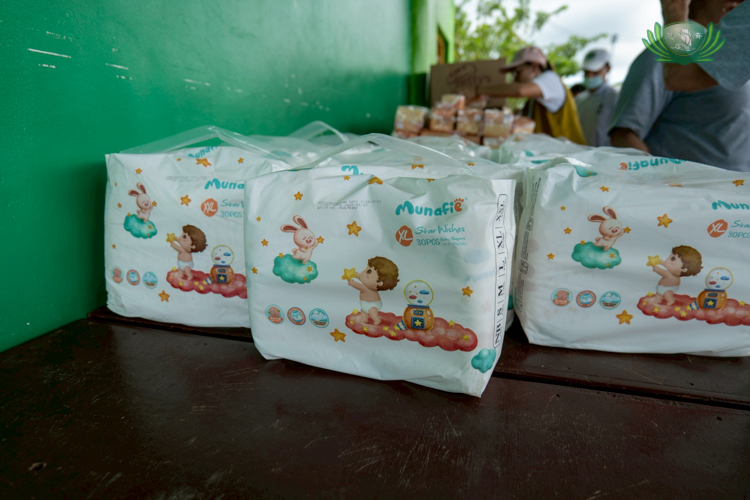 Diapers were also distributed to parents with little children during the relief.
Diapers were also distributed to parents with little children during the relief.
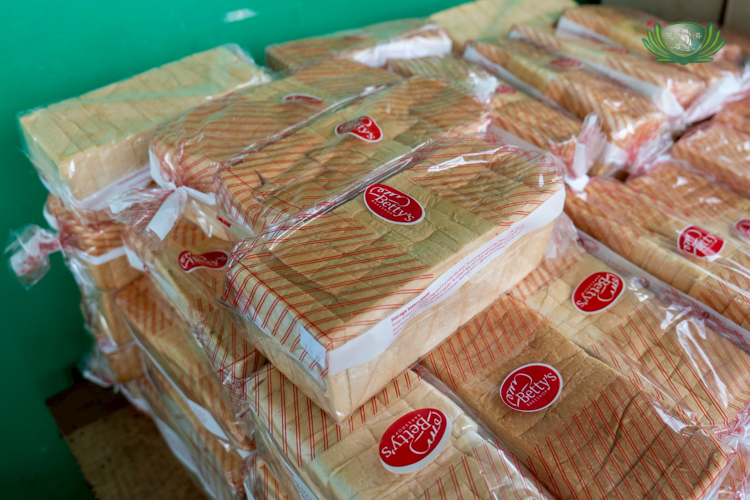 Ready-to-eat food like bread helped alleviate beneficiaries’ hunger.
Ready-to-eat food like bread helped alleviate beneficiaries’ hunger.
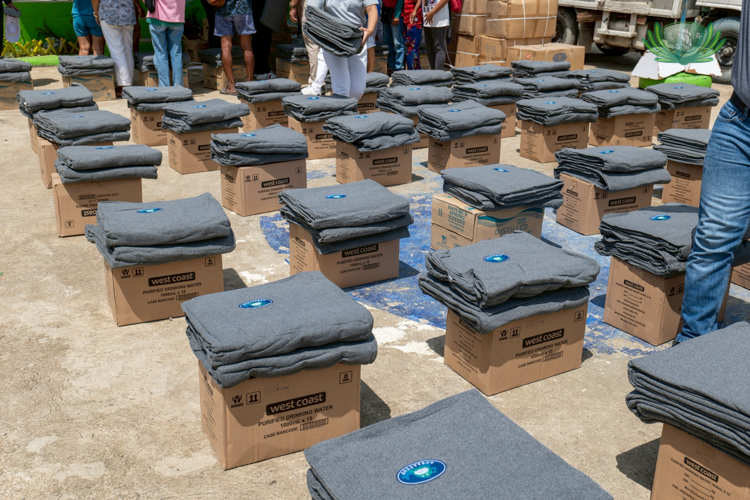 Boxes of relief goods and blankets were prepared for the beneficiaries.
Boxes of relief goods and blankets were prepared for the beneficiaries.
 With the loss of resources, beneficiaries were in great need of clean, drinkable water. Volunteers came with cases of bottled water.
With the loss of resources, beneficiaries were in great need of clean, drinkable water. Volunteers came with cases of bottled water.
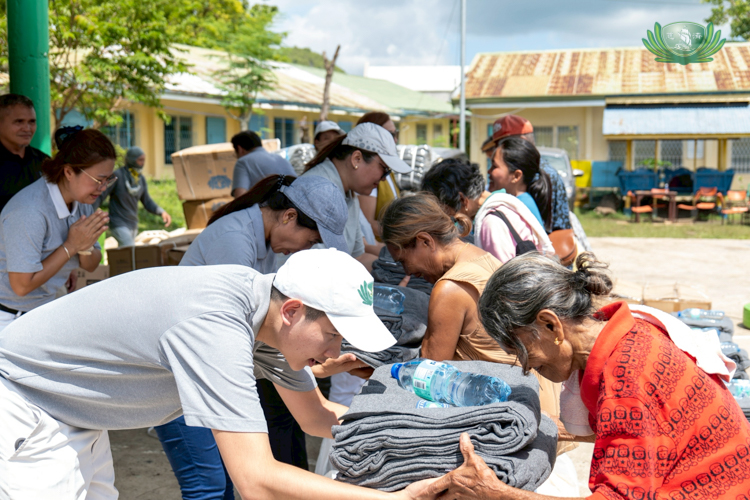 With a bow of gratitude, beneficiaries receive their relief from volunteers.
With a bow of gratitude, beneficiaries receive their relief from volunteers.
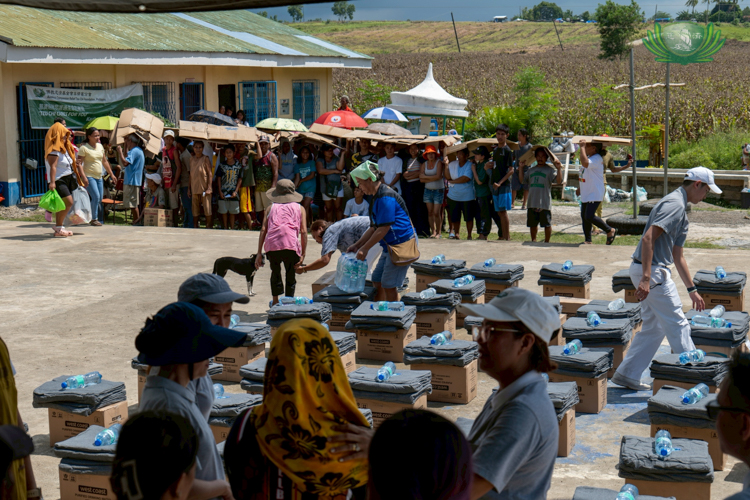 Many beneficiaries wait under the heat to receive their relief goods.
Many beneficiaries wait under the heat to receive their relief goods.
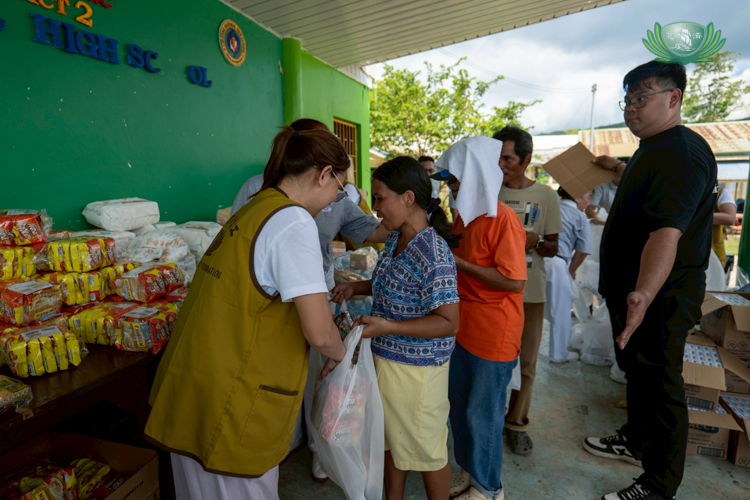 Volunteers distribute relief in an orderly fashion.
Volunteers distribute relief in an orderly fashion.
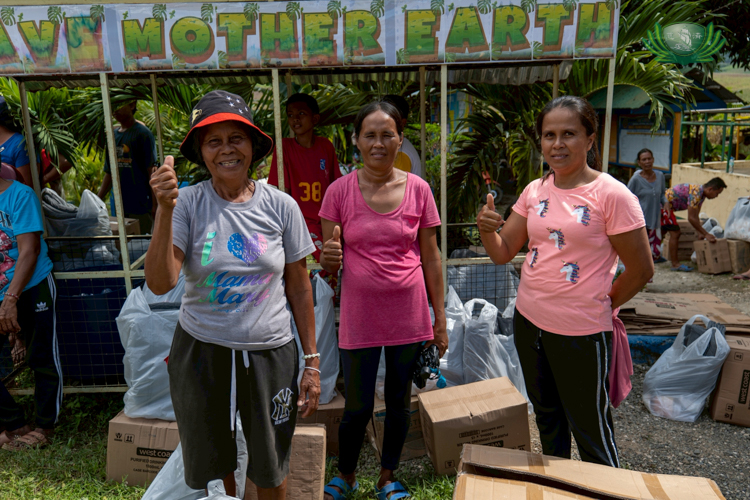 Beneficiaries are happy for the blessings they received.
Beneficiaries are happy for the blessings they received.
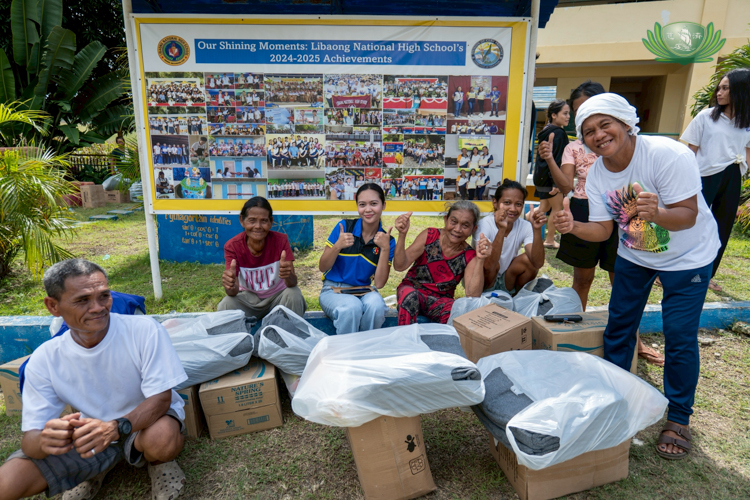 Beneficiaries are happy for the blessings they received.
Beneficiaries are happy for the blessings they received.
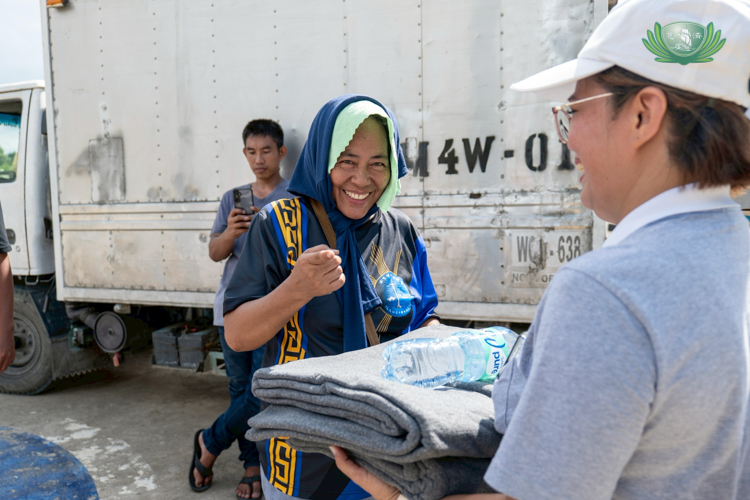 Elizabeth Tunacao smiles as she receives her relief goods.
Elizabeth Tunacao smiles as she receives her relief goods.
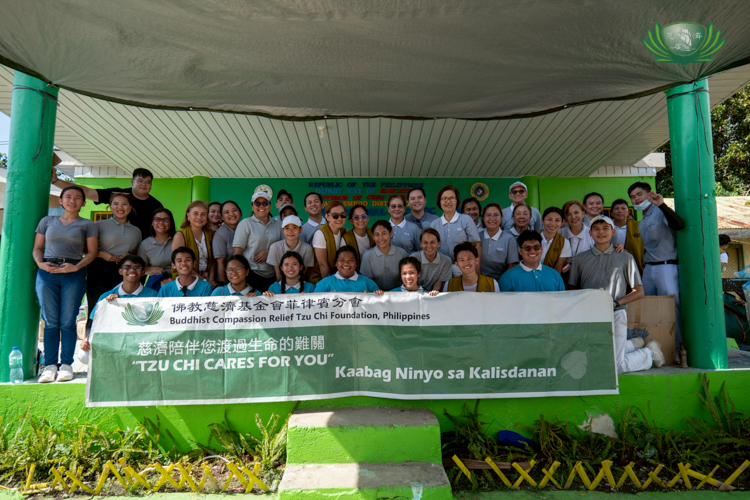 Volunteers take a group photo after a successful relief distribution in Barangay Libaong, San Remigio, Cebu, on October 5.
Volunteers take a group photo after a successful relief distribution in Barangay Libaong, San Remigio, Cebu, on October 5.





